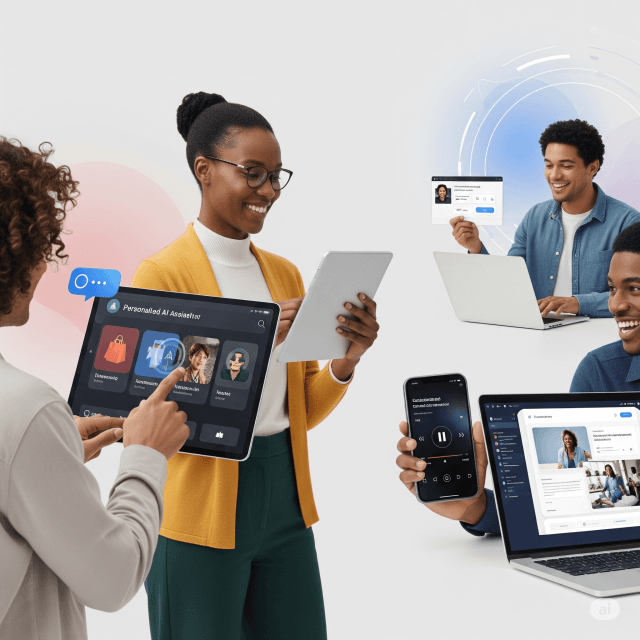In today’s digital landscape, businesses are increasingly seeking ways to connect with their customers on a more personal level. One of the most effective methods to achieve this is through the integration of Artificial Intelligence (AI) and personalization. By leveraging sophisticated algorithms and data analytics, organizations can tailor their offerings to meet individual preferences, ultimately enhancing customer satisfaction and loyalty.
The Importance of Personalization
In a world inundated with options, personalization helps brands stand out. Customers are more likely to engage with businesses that recognize their unique preferences. Personalized experiences not only enhance customer satisfaction but also lead to increased conversion rates and repeat purchases. According to McKinsey, 71% of consumers expect personalized interactions, and 76% feel frustrated when this isn’t offered.
How AI Powers Personalization
AI is at the forefront of creating personalized customer experiences by analyzing vast amounts of data to identify behavior patterns. Here’s how AI facilitates this:
1. Data Collection and Analysis
AI systems can analyze customer data from multiple sources, including past purchases, browsing behavior, social media interactions, and even feedback surveys. This data is crucial for understanding customer preferences and predicting future behaviors. Machine learning algorithms can sort through complex datasets and uncover insights that would be impossible for humans to identify manually.
2. Segmentation
Once data is collected, AI algorithms can segment customers into distinct groups based on their behaviors and preferences. This segmentation allows businesses to target specific groups with tailored marketing strategies. For instance, a retailer may identify a segment of eco-conscious shoppers and curate promotions around sustainable products.
3. Personalized Recommendations
One of the most visible applications of AI-driven personalization is in recommendation systems. Companies like Amazon and Netflix use AI to analyze user behavior and suggest products or content tailored to individual tastes. When a customer receives recommendations that resonate with their interests, they’re more likely to make a purchase or continue viewing content.
4. Dynamic Content Delivery
AI enables businesses to deliver dynamic content that adjusts in real time based on user interactions. For example, a website can change its displayed products depending on the user’s browsing history, leading to a more engaging experience. Email marketing campaigns can also be personalized using AI to send targeted messages based on customer behavior.
5. Chatbots and Customer Support
AI-driven chatbots provide personalized customer service by employing natural language processing (NLP) to understand customer inquiries. These chatbots can provide tailored responses and even anticipate customer needs, enhancing the overall service experience. For instance, a customer may receive real-time assistance tailored to their previous interactions with the brand.
Challenges to Overcome
While the benefits of AI and personalization are compelling, there are challenges that businesses must navigate:
1. Data Privacy Concerns
As personalization relies heavily on data, companies must address customer concerns about privacy and data security. Transparency in data collection practices and ensuring compliance with regulations such as GDPR is crucial to building trust.
2. Over-Personalization
There is a fine line between being helpful and being intrusive. Over-personalization can lead to negative customer experiences. Brands must balance personalization efforts without making customers feel uncomfortable or targeted.
3. Integration of Technologies
Implementing AI for personalization requires a cohesive strategy and the integration of various technologies. Businesses must invest in the necessary infrastructure to facilitate data collection, analysis, and implementation of AI solutions.
Future of AI and Personalization
Looking ahead, the potential for AI in personalization is vast. As technology continues to evolve, we can expect even more sophisticated algorithms that can predict customer behavior with greater accuracy. The rise of augmented reality (AR) and virtual reality (VR) technologies may also offer new avenues for personalized customer experiences, transforming how consumers interact with brands.
Conclusion
AI is revolutionizing the way businesses connect with their customers, enabling tailored experiences that foster engagement and loyalty. By effectively harnessing the power of data and AI technologies, brands can create meaningful interactions that cater to the unique preferences of each individual. As the landscape continues to evolve, those who prioritize personalized experiences will likely stand out in the competitive marketplace. Embracing AI isn’t just a smart strategy; it’s essential for any business aiming to thrive in the age of personalization.









